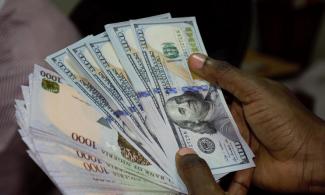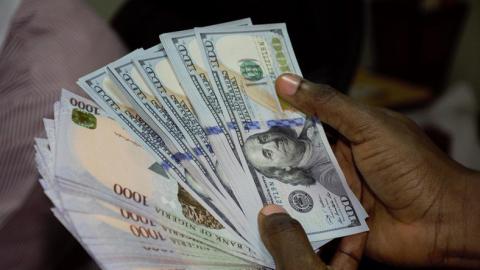
The development, they said, has made them resort to buying bitcoins and paying their wards fees through the same. Some also stated that they purchase forex through the parallel market.
Several Nigerian parents have lamented the delay in payments of their children's tuition in foreign institutions.
Some parents said it is now tough to access forex from banks in good time to pay their children's school fees abroad, with several dollar requests piling up in banks for weeks.

The development, they said, has made them resort to buying bitcoins and paying their wards fees through the same. Some also stated that they purchase forex through the parallel market.
Ordinarily, payment of school fees overseas through Nigerian banks are expected to be consummated within 24 hours of filling a CBN document called Form A at a commercial bank.
Some banks now delay their customers as much as six weeks to two months.
A parent, Maria Adigun, whose son is studying in a Turkish university, said she had also been experiencing what she described as "unimaginable pain" to pay her child's school fees, which had to be done in dollars.
She said in a report by Punch, "I had put in my application for the purchase of the dollars about three months ago, specifically early January, by depositing enough naira in my account. I was asked to keep checking with them to know when it would be my turn since the bank claimed that some people were in the queue before me.
"I kept checking, almost every three days since January 5, 2021, but up till March 7, there was no success. There was a day I wept openly in the banking hall because the calls I was getting from my son was affecting me psychologically.
"I would not have dabbled into sending him abroad if it were to be now, but that was what his father wanted while he was alive. Unfortunately, he died a year after my son, Ibidapo, resumed his academic programme abroad. I did not want to dampen his morale, so I had to continue paying. Now, he has two years to go."
Also speaking, Tunde Akinsola, an Ibadan-based civil engineer, said due to the forex problem, he almost ran into trouble earlier in the year over the delay in the payment of the tuition fees of his son, who is studying in Ukraine.
Commenting on the situation, economists attributed the development to activities of some players hoarding the greenback and increasing pressure by international organisations like the World Bank, International Monetary Fund and the World Trade Organisation on the CBN to devalue the naira was also fuelling speculation against the local currency.
A Professor of Economics, Leo Ukpong, said speculators were hoarding the greenback in anticipation of a further crash in naira against the dollar at the official and parallel markets.
He said, "Part of the reasons parents are experiencing this challenge is that some people are buying dollars and keeping them in anticipation that the CBN will soon devalue the naira.
"They believe the naira will fall further both at the official and parallel markets very soon. You know that the World Bank, IMF and World Trade Organisation have been putting pressure on the CBN to devalue the naira. This is making people believe that the naira will fall further.
"As a result, a lot of people are hoarding the dollar. Imagine you buy the greenback now at around N410 and later you sell at N600 per dollar. This is part of the things creating the imbalance in the system."